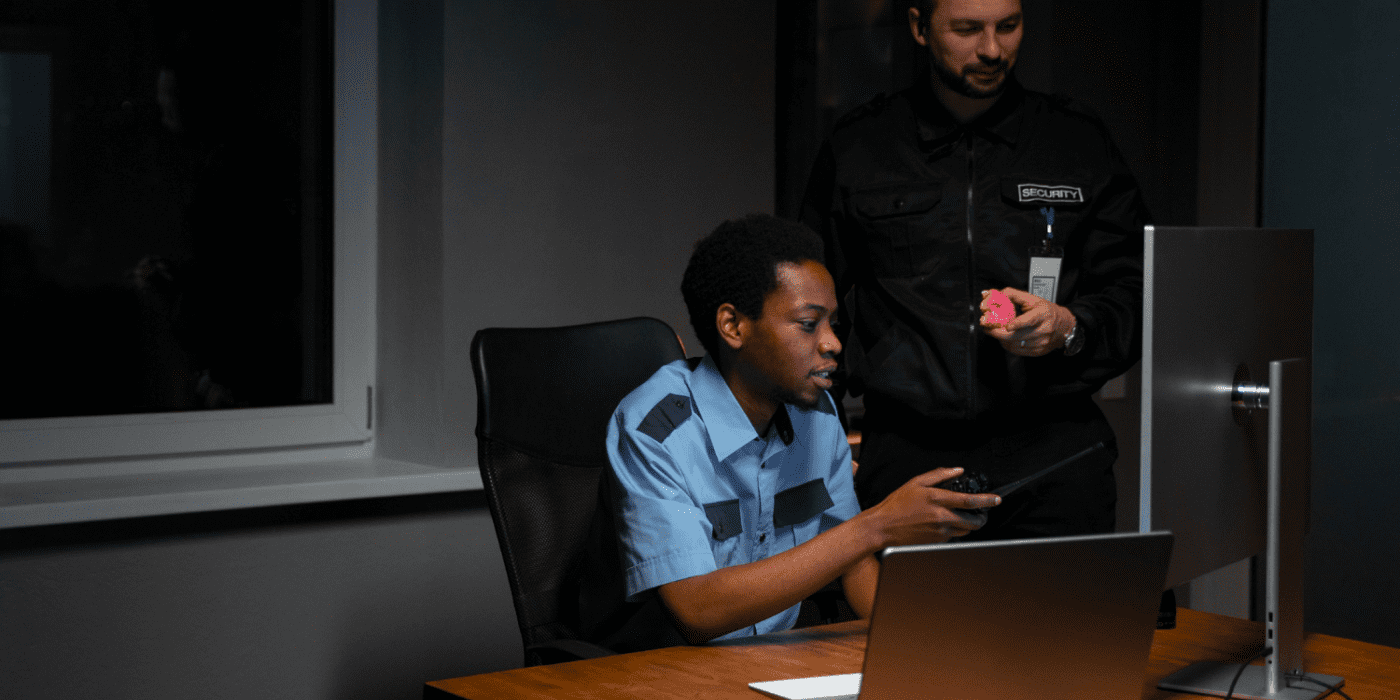Campus Security Authority: Roles, Responsibilities
Definition of Campus Security Authority
This section will provide a clear definition of what campus security authority entails. It will outline the responsibilities and powers granted to campus security personnel to maintain safety and security within the campus environment. The definition will encompass the legal basis, jurisdiction, and scope of authority held by campus security personnel.
Importance of Understanding Campus Security Authority
Here, we’ll discuss the significance of comprehending campus security authority for all members of the campus community. Understanding the role and responsibilities of campus security personnel helps foster cooperation, ensures compliance with campus rules and regulations, and promotes a safer campus environment overall. Emphasizing the importance of this understanding sets the stage for the rest of the article.
Overview of the Article’s Focus
This part will provide a brief overview of the main topics that the article will cover. It will highlight the various aspects of campus security authority, including its definition, legal basis, roles and responsibilities, common FAQs, training and preparation, collaboration with the community, and the conclusion. This overview will help readers understand the structure and purpose of the article.
Understanding Campus Security Authority
Definition and Scope of Campus Security Authority
This section will delve into the definition and scope of campus security authority. It will outline the specific responsibilities and powers granted to campus security personnel to ensure the safety and security of individuals, property, and facilities within the campus environment. Additionally, it will discuss the extent to which campus security authority applies within the campus boundaries.
Legal Basis and Jurisdiction
Here, we’ll explore the legal foundation and jurisdiction of campus security authority. This includes an overview of relevant laws, regulations, and policies that govern the actions of campus security personnel. We’ll also discuss the jurisdictional boundaries within which campus security personnel are authorized to operate, including any agreements or partnerships with local law enforcement agencies.
Powers and Limitations of Campus Security Personnel
In this part, we’ll examine the powers and limitations of campus security personnel in carrying out their duties. This will include a discussion of the specific authorities granted to them, such as the ability to detain individuals, issue citations, or enforce campus policies. We’ll also address any constraints or restrictions on their authority, as well as the protocols they must follow when exercising their powers.
Roles and Responsibilities of Campus Security Authority
Maintaining Safety and Security on Campus Grounds
This section will outline the primary responsibility of campus security authority in maintaining safety and security on campus grounds. It will discuss the various measures taken by campus security personnel to prevent and address security threats, including patrols, surveillance, access control, and response to incidents.
Enforcing Campus Rules and Regulations
Here, we’ll explore how campus security authority is tasked with enforcing campus rules and regulations to maintain order and safety. This may include enforcing policies related to parking, trespassing, alcohol and drug use, and other conduct codes. We’ll discuss the importance of consistent enforcement to uphold campus standards and promote a respectful environment.
Assisting with Emergency Response and Crisis Management
This part will highlight the crucial role of campus security authority in assisting with emergency response and crisis management efforts. It will discuss the responsibilities of security personnel in coordinating responses to emergencies such as fires, medical incidents, natural disasters, and security threats. Additionally, it will address the importance of training and preparedness for effective crisis management.
Providing Assistance and Support to the Campus Community
In this section, we’ll discuss how campus security authority provides assistance and support to members of the campus community. This may include offering directions, escort services, or emergency assistance to students, faculty, staff, and visitors. We’ll also address the role of security personnel in responding to inquiries, concerns, and requests for assistance to ensure the well-being of individuals on campus.
Training and Preparation for Campus Security Personnel
Importance of Training for Campus Security Personnel
This section will emphasize the critical importance of training for campus security personnel. It will discuss how comprehensive training programs are essential for equipping security officers with the knowledge, skills, and competencies needed to effectively perform their duties. Emphasis will be placed on the role of training in enhancing preparedness, improving decision-making abilities, and ensuring compliance with relevant laws, regulations, and policies.
Topics Covered in Campus Security Training Programs
Here, we’ll provide an overview of the topics typically covered in campus security training programs. This may include areas such as conflict resolution, emergency response procedures, first aid and CPR, de-escalation techniques, diversity and cultural competency, legal and ethical considerations, report writing, and communication skills. The section will highlight the importance of addressing a diverse range of topics to prepare security personnel for the various challenges they may encounter on campus.
Ongoing Professional Development for Campus Security Personnel
In this part, we’ll discuss the importance of ongoing professional development for campus security personnel. We’ll explore the need for continuous learning and skill-building to stay updated on emerging security threats, new technologies, and best practices in the field. Strategies for facilitating ongoing professional development, such as participation in workshops, conferences, and online courses, as well as opportunities for mentorship and peer learning, will be highlighted.
Collaboration and Community Engagement
Importance of Collaboration with the Campus Community
This section will underscore the significance of collaboration between campus security personnel and the campus community. It will highlight how working closely with students, faculty, staff, and other stakeholders fosters a sense of shared responsibility for campus safety. By involving the community in security initiatives, security personnel can gain valuable insights, support, and cooperation, ultimately enhancing the effectiveness of security measures and promoting a safer environment for everyone.
Building Partnerships with Law Enforcement Agencies and Community Organizations
Here, we’ll discuss the importance of forging partnerships with external entities such as law enforcement agencies and community organizations. Collaborating with local police departments, emergency responders, and neighborhood associations allows campus security personnel to leverage additional resources, expertise, and support in addressing security challenges. We’ll explore strategies for establishing and maintaining effective partnerships to enhance the overall security and well-being of the campus community.
Promoting a Culture of Safety and Inclusivity
In this part, we’ll examine the role of campus security personnel in promoting a culture of safety, respect, and inclusivity within the campus community. We’ll discuss initiatives and programs aimed at raising awareness about safety issues, promoting diversity and inclusion, and fostering mutual respect among all members of the campus community. By actively promoting these values, campus security personnel contribute to creating a supportive and welcoming environment where everyone feels valued and empowered to contribute to campus safety.
Conclusion
Recap of Key Points Regarding Campus Security Authority
This section will provide a concise recap of the key points discussed throughout the article regarding campus security authority. It will summarize the roles and responsibilities of campus security personnel, their authority, the importance of training and partnerships, and the use of technology in enhancing campus security.
Emphasis on the Significance of Campus Security Authority in Maintaining a Safe Campus Environment
Here, we’ll emphasize the crucial role that campus security authority plays in ensuring a safe and secure environment for students, faculty, staff, and visitors. We’ll underscore how effective security measures contribute to creating an atmosphere conducive to learning, working, and living, and how campus security personnel are instrumental in upholding this environment.
Call to Action for Continued Support and Investment in Campus Security Measures
In this part, we’ll issue a call to action for continued support and investment in campus security measures. We’ll emphasize the importance of prioritizing resources, training, and technology to enhance campus security and address evolving threats effectively. By rallying support from stakeholders and decision-makers, we can ensure that campus security remains a top priority and that ongoing efforts are made to maintain and improve safety on college and university campuses.
Common FAQs about Campus Security Authority
1) What Is a Campus Security Authority (CSA)?
This section will provide a clear definition of a campus security authority (CSA) and explain their role in maintaining safety and security on campus. It will outline the responsibilities and authority granted to CSAs and how they contribute to ensuring the well-being of the campus community.
2) What Authority Do Campus Security Officers Have?
Here, we’ll explore the authority granted to campus security officers and the scope of their responsibilities. We’ll discuss the powers conferred upon them to enforce campus rules and regulations, respond to incidents, and maintain order within the campus environment.
3) Can Campus Security Officers Make Arrests?
This part will address whether campus security officers have the authority to make arrests and under what circumstances. We’ll outline the legal requirements and procedures that must be followed when campus security officers are involved in apprehending individuals suspected of committing crimes on campus grounds.
4) How Do Campus Security Officers Handle Disciplinary Actions?
In this section, we’ll explain the role of campus security officers in handling disciplinary actions and enforcing campus policies. We’ll discuss the procedures for addressing violations and the mechanisms for reporting incidents to appropriate campus authorities for further action.
5) Are Campus Security Officers Allowed to Carry Weapons?
Here, we’ll discuss whether campus security officers are permitted to carry weapons while on duty. We’ll explore the policies and regulations governing the use of firearms and other defensive equipment by campus security personnel, as well as the training requirements and protocols that must be followed.
6 What Should I Do If I Encounter a Campus Security Issue?
In this final section, we’ll provide guidance on what individuals should do if they encounter a campus security issue or have concerns about their safety on campus. This may include reporting incidents to campus security, seeking assistance from campus authorities or law enforcement agencies, and accessing support services available to the campus community.


